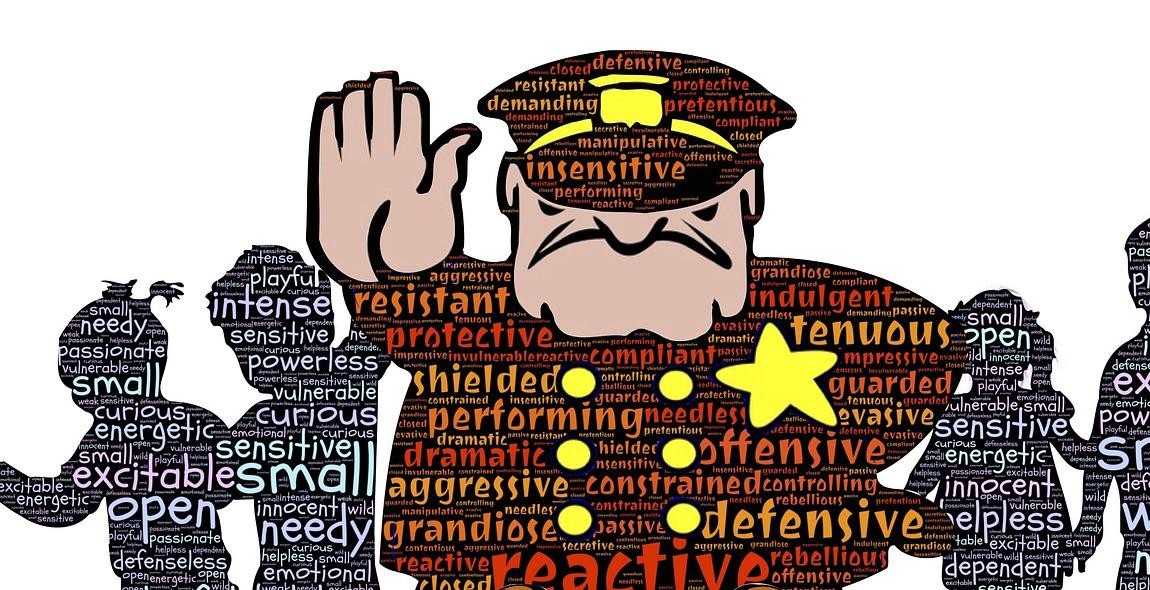Taming Your Inner Critic: Psychological Strategies for Self-Compassion
Have you ever found yourself stuck in a cycle of negative self-talk? Do you struggle with feelings of self-doubt and inadequacy? If so, you’re not alone. Many people struggle with their inner critic, that nagging voice in their head that tells them they’re not good enough, smart enough, or talented enough.
The good news is that you can learn to tame your inner critic and cultivate self-compassion. With the right psychological strategies, you can shift your mindset and start treating yourself with kindness and understanding.
What is the Inner Critic?
The inner critic is that voice in your head that judges and criticizes you. It’s the voice that tells you that you’re not good enough, that you’re a failure, or that you don’t deserve success or happiness. The inner critic can be relentless, and it can be difficult to silence.
Why is Self-Compassion Important?
Self-compassion is the practice of treating yourself with kindness, understanding, and acceptance. It’s about recognizing that you’re only human, and that everyone makes mistakes and has flaws. Self-compassion can help you break free from the cycle of negative self-talk and build a more positive and resilient mindset.
In this article, we’ll explore some effective psychological strategies for taming your inner critic and cultivating self-compassion. Whether you’re struggling with self-doubt, anxiety, or depression, these strategies can help you shift your perspective and start treating yourself with the kindness and compassion you deserve.

Understanding Your Inner Critic
Before we dive into strategies for taming your inner critic, it’s important to understand what it is and how it develops. Your inner critic is that voice inside your head that tells you that you’re not good enough, that you’re a failure, or that you’ll never succeed. It’s the voice that can be so harsh and critical that it can make you feel small, defeated, and overwhelmed.
What is the Inner Critic?
The inner critic is a part of our psyche that is responsible for our self-evaluation and self-criticism. It’s the voice that judges our thoughts, actions, and behaviors, often with a critical and negative tone. The inner critic can be a powerful force that affects our self-esteem, confidence, and overall well-being.
How the Inner Critic Develops
The inner critic develops over time as a result of our experiences and interactions with the world around us. It can be influenced by our upbringing, our relationships, and our own personal beliefs and values. For example, if you grew up in an environment where you were constantly criticized or belittled, you may have developed an inner critic that is particularly harsh and critical. Alternatively, if you’ve experienced a significant failure or setback in your life, your inner critic may have become more active and persistent.
It’s important to remember that the inner critic is a normal part of our psychological makeup, and that everyone experiences it to some degree. However, when the inner critic becomes too dominant or overwhelming, it can have a serious impact on our mental health and well-being.

The Effects of Self-Criticism
Self-criticism can be detrimental to one’s mental health. Negative self-talk can lead to low self-esteem, anxiety, and depression. When individuals constantly criticize themselves, it can create a cycle of negative thoughts and emotions that can be challenging to break.
Negative Self-Talk
Negative self-talk can be defined as the inner dialogue that an individual has with themselves. It is often critical and judgmental, and can lead to feelings of inadequacy and self-doubt. When individuals engage in negative self-talk, they are essentially reinforcing negative beliefs about themselves, which can be damaging to their mental health.
Low Self-Esteem
Self-criticism can also lead to low self-esteem. When individuals are constantly criticizing themselves, they are reinforcing negative beliefs about themselves, which can make it difficult for them to feel good about themselves. Low self-esteem can lead to feelings of worthlessness, which can be challenging to overcome.
Anxiety and Depression
Self-criticism can also lead to anxiety and depression. When individuals are constantly criticizing themselves, it can create a cycle of negative thoughts and emotions that can be challenging to break. Anxiety and depression can be debilitating, and can make it difficult for individuals to function in their daily lives.
In conclusion, self-criticism can be detrimental to one’s mental health. Negative self-talk can lead to low self-esteem, anxiety, and depression. It is essential for individuals to learn how to tame their inner critic and practice self-compassion to improve their mental health and well-being.

The Benefits of Self-Compassion
Self-compassion is the act of being kind and understanding towards oneself, especially in moments of failure or difficulty. It is a powerful psychological tool that can help individuals navigate through life’s challenges with greater ease and grace. Here are some of the benefits of practicing self-compassion:
Increased Resilience
Self-compassion has been shown to increase resilience in individuals. When faced with setbacks or failures, those who practice self-compassion are more likely to bounce back and persevere. This is because self-compassion helps individuals view their failures as opportunities for growth, rather than as personal shortcomings.
Improved Relationships
Self-compassion can also improve relationships with others. When individuals are kinder and more understanding towards themselves, they are more likely to extend the same kindness and understanding towards others. This can lead to stronger and more meaningful connections with loved ones, colleagues, and acquaintances.
Greater Happiness
Finally, self-compassion has been linked to greater levels of happiness. By treating oneself with compassion and understanding, individuals are able to cultivate a sense of inner peace and contentment. This can lead to greater overall life satisfaction and a more positive outlook on life.
| Benefits of Self-Compassion |
|---|
| Increased Resilience |
| Improved Relationships |
| Greater Happiness |
Overall, practicing self-compassion can have a profound impact on one’s life. By cultivating kindness and understanding towards oneself, individuals can increase their resilience, improve their relationships, and experience greater levels of happiness.

Psychological Strategies for Self-Compassion
Self-compassion is a vital aspect of emotional well-being and mental health. It is an attitude of kindness and understanding towards oneself in times of pain or failure. To develop self-compassion, three interconnected elements need to be practiced:
Mindfulness
Mindfulness is the practice of being present and aware of one’s thoughts, feelings, and physical sensations without judgment. It helps to observe negative thoughts and emotions without getting caught up in them. Mindfulness meditation is an effective way to cultivate self-compassion. It helps to develop a non-judgmental attitude towards oneself and others.
Self-Kindness
Self-kindness involves treating oneself with the same care and compassion that one would offer a friend. It involves being gentle with oneself, acknowledging one’s suffering, and responding with kindness and understanding. Self-kindness helps to reduce self-criticism and promotes emotional resilience. It is essential to practice self-kindness regularly to develop self-compassion.
Common Humanity
Common humanity is the recognition that suffering and failure are a part of the shared human experience. It involves recognizing that everyone experiences pain and difficulty at some point in life. This perspective helps to reduce feelings of isolation and self-blame. It promotes a sense of connection and empathy towards oneself and others.
By incorporating the three elements of mindfulness, self-kindness, and common humanity, one can develop a more compassionate attitude towards oneself. It is essential to practice self-compassion regularly to improve emotional well-being and mental health.
Practical Tips for Taming Your Inner Critic
Dealing with your inner critic can be a daunting task, but it is not impossible. Here are some practical tips that can help you tame your inner critic:
Identify Your Inner Critic
The first step in taming your inner critic is to identify it. Pay attention to your thoughts and feelings. When negative self-talk arises, take a moment to ask yourself if this is your inner critic speaking. Once you have identified your inner critic, give it a name. This will help you separate your thoughts and feelings from your inner critic’s voice.
Challenge Negative Self-Talk
Challenge your inner critic’s negative self-talk by asking yourself if it is true. Often, our inner critic’s voice is based on assumptions and beliefs that are not based on reality. Once you have identified that your inner critic’s voice is not true, replace it with a positive affirmation. For example, if your inner critic tells you that you are not good enough, replace it with a positive affirmation such as “I am enough.”
Practice Self-Compassion
Practice self-compassion by treating yourself with kindness and understanding. When you make a mistake, instead of beating yourself up, treat yourself with the same kindness and understanding that you would offer a friend. Remember that you are human and that making mistakes is a natural part of the learning process.
- Identify your inner critic
- Challenge negative self-talk
- Practice self-compassion
By following these practical tips, you can begin to tame your inner critic and cultivate self-compassion. Remember that taming your inner critic is a process, so be patient and kind to yourself.

Conclusion
Dealing with your inner critic can be a challenging task, but it is essential to maintain a healthy mental state. Self-compassion is a powerful tool to overcome negative self-talk and develop a positive outlook on life. By accepting and embracing your imperfections, you can build resilience and self-esteem.
Psychological Strategies for Self-Compassion
- Mindfulness: Being present and aware of your thoughts and emotions can help you identify negative self-talk and replace it with positive affirmations.
- Self-Kindness: Treat yourself with the same kindness and compassion that you would offer a friend. Be gentle and understanding with yourself.
- Common Humanity: Recognize that everyone makes mistakes and experiences failures. You are not alone in your struggles.
It is important to remember that self-compassion is not a one-time fix. It is a continuous practice that requires patience and dedication. With time and effort, you can overcome your inner critic and live a fulfilling life.
Start Your Journey to Self-Compassion Today
Take the first step towards self-compassion by acknowledging your inner critic and its impact on your life. Use the psychological strategies discussed in this article to cultivate self-compassion and overcome negative self-talk.
Remember, you deserve to be kind and compassionate towards yourself.
